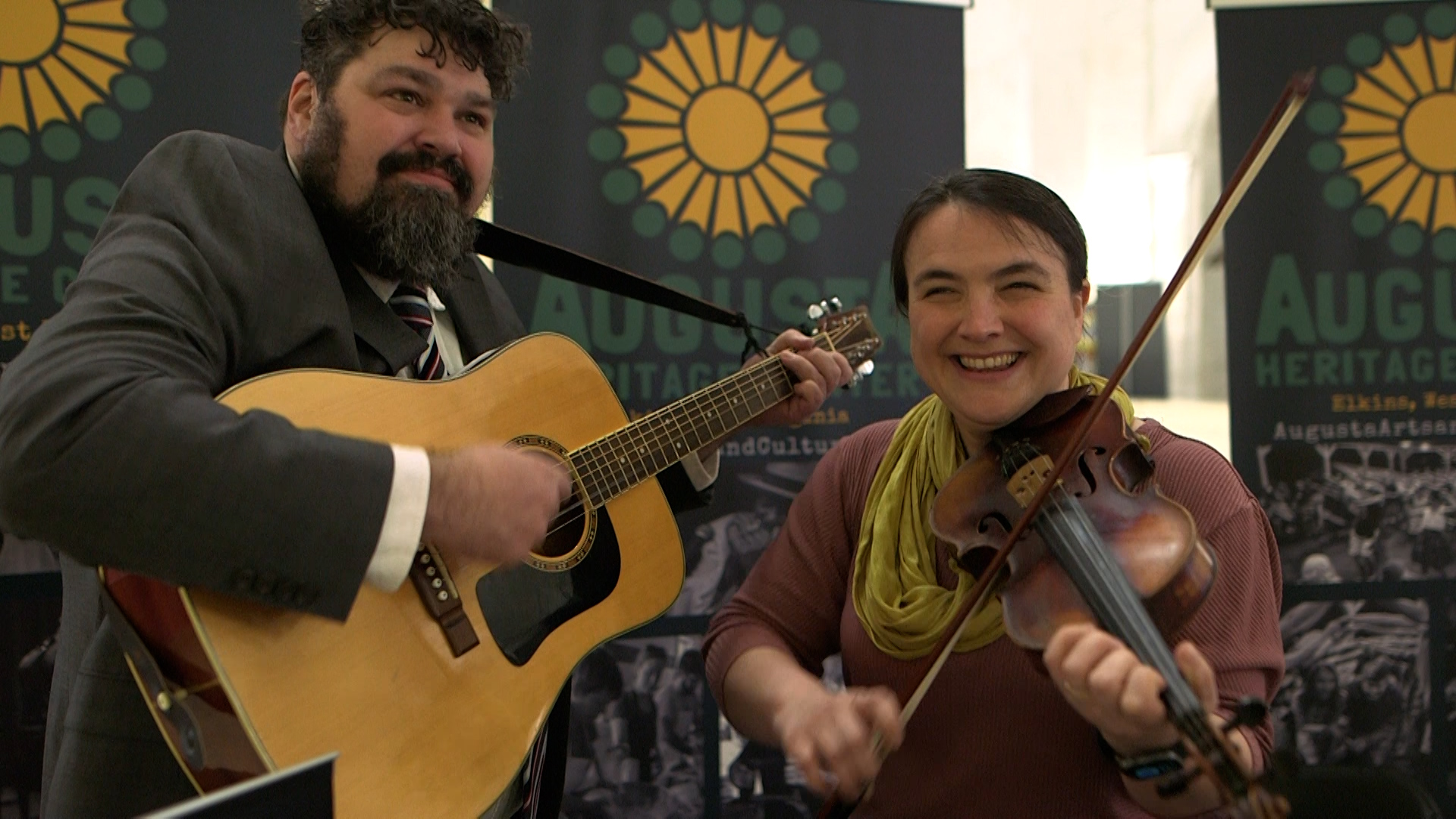Musicians, theater folks, painters and sculptors filled the Capitol rotunda on Arts Day at the 2023 West Virginia Legislature. There were themes of longevity among the muses, along with an amiable artistic forecast for the future.
Visitors do much more than fiddle around at the Augusta Heritage Center in Randolph County. Celebrating 50 years of preserving and elevating traditional West Virginia art forms, Executive Director Seth Young said the center’s annual July Heritage Series workshops have become an international arts mecca.
“It’s three weeks of music, art, craft, folklore, foodways and folkways on the campus of Davis and Elkins College,” Young said. “People come from all over the world to study things such as Cajun and Creole culture, swing music, classic country music, bluegrass, vocal blues, old-time music, and of course crafts, folkways and folklore.”
West Virginia Public Broadcasting’s Mountain Stage is celebrating 40 years of live music performances. Associate Director Mallory Richards said with a network of more than 290 stations airing the program around the globe, Mountain Stage is West Virginia’s calling card to the world.
“You can tune in wherever you are. You could be in the car driving down the road or you can join us here in Charleston, West Virginia for a live show,” Richards said. “It really goes back to hospitality. Everyone’s treated equally. Our artists backstage, it’s like welcoming a family home.”
Ten or so years ago, when West Virginia’s public schools faced serious budget challenges, many said the arts were not a priority. They asked, do we really need a band or theater department? In 2023, the opposite seems true.
Singing in the Senate chamber, the Appalachian Children’s Choir is living proof of what state Curator of Arts, Culture and History Randall Reid-Smith said is a statewide, flourishing font of artistic creativity.
“I was just at the Wood County Board of Education to present awards. They were recognized in all the arts, and they just put back in their school system, fifth grade band. I mean, that is huge,” Reid-Smith said. “We just had, in the last two days, the West Virginia State Arts Conference. We had 147 arts organizations and individual artists that have wonderful outreach programs into our schools. And the thing that they were all excited about is that the arts are back. Arts are great and today we’re here at Arts Day, we have all 55 booths filled, it is all about the arts.”
Reid-Smith said the only pure academic pursuit is the arts, that everything else in life is just an elective.
West Virginia Public Broadcasting is a state agency within the Department of Arts, Culture and History.
